Free Museums in Los Angeles You Should Visit
There's plenty of fun and free things to do in Los Angeles. Here's a breakdown of the best free museums in Los Angeles.
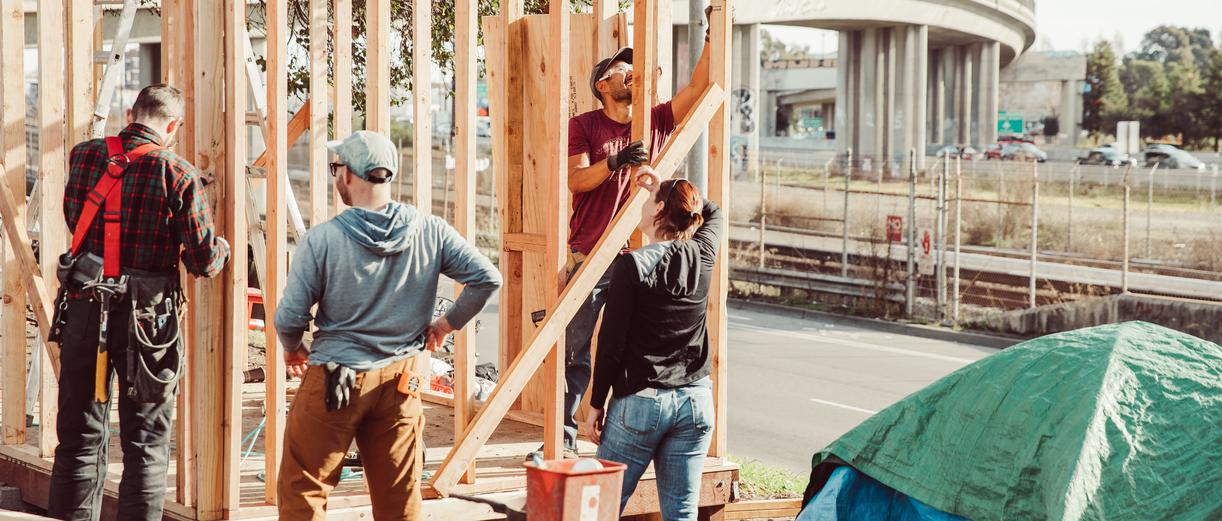
We talked to homelessness activist Needa Bee about her work with The Village and how everyday people can help the homelessness crisis.
This story is part of the California.com series “Helping the Unhoused,” which examines homelessness and addresses ways we can help the unhoused and underhoused communities.
When homelessness activist Needa Bee saw several of her friends and fellow community members out in the streets of Oakland, shivering and sick on one of the coldest nights of the year, she knew she had to do something.
“It was December 2016, right around Christmas … and at every [homeless] encampment I visited to share meals, provide provisions, and check in on folks—everyone was deathly sick or already had pneumonia because it was so cold,” says the Oakland native and resident. “So, I decided there on the spot: We’re going to start building houses.”

Three weeks later, Bee and her activist group, The Village in Oakland, took over a portion of Marcus Garvey Park to construct tiny homes and start a supportive community. They also established a medical clinic, created a garden, provided bathroom facilities, and instated regular political assemblies to discuss the housing crisis. Though this was the first time The Village had built emergency homes for the unhoused, it certainly was not the last.

Does your business rank among the best in California?
nominate a businessLearn more about our selection criteria and vetting process.
Since then, Bee and her fellow volunteers have built more than 20 small houses on public land. Though she says the majority of those homes have been dismantled by the City of Oakland, she remains undeterred—and if anything, she’s now more determined to protect the rights of Californians impacted by the housing crisis. She describes The Village as a movement, relentlessly working to provide on-the-ground services and aid for the unhoused (and underhoused) population. The community-funded, volunteer-driven organization also advocates for housing rights, attempts to stop evictions, and delivers public commentary at city council meetings.
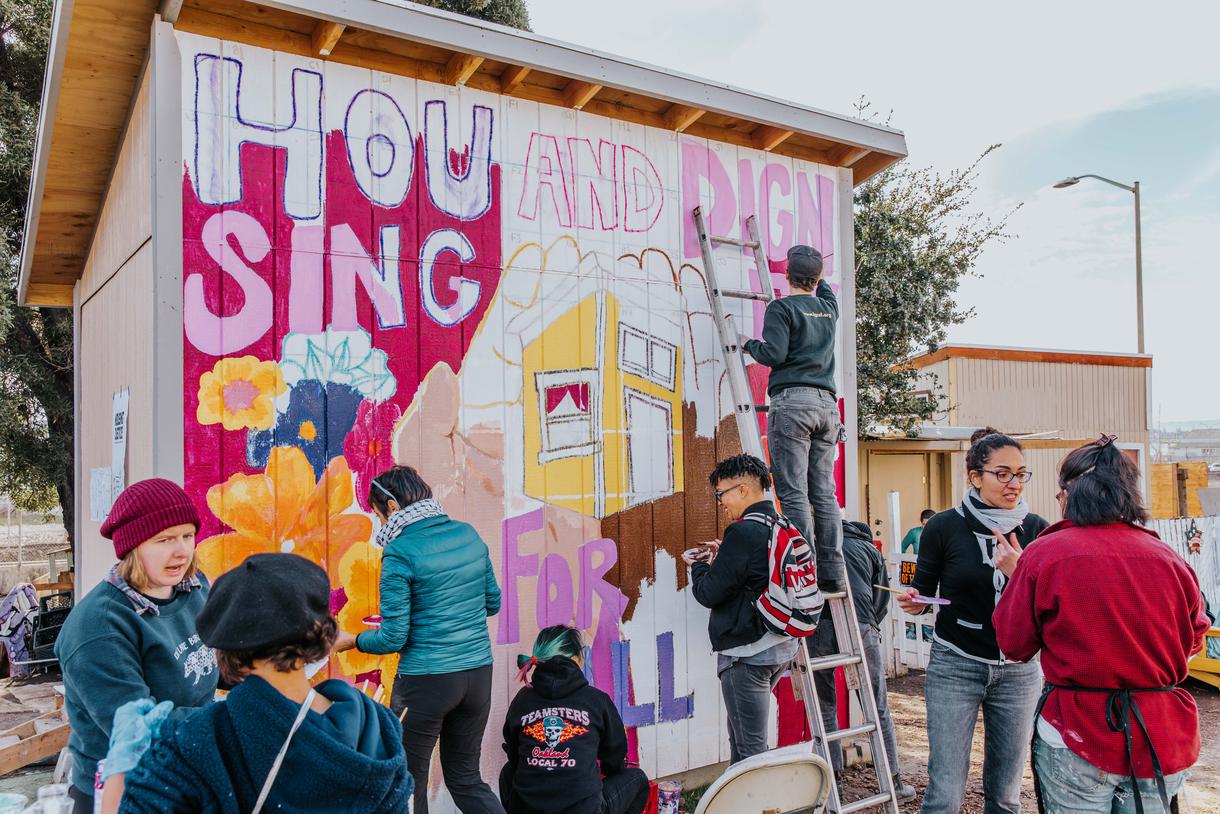
With the ever-growing homelessness crisis in California—and especially in the booming Bay Area—Bee knows helping and fighting for the unhoused is more critical than ever. According to EveryOneHome, a San Leandro–based organization that performs annual point-in-time counts for Alameda County, the number of unhoused people in Oakland has nearly doubled since 2017. At least 4,071 people in the city are homeless, though many advocates believe this number is inaccurately low and likely closer to 9,000. And in Alameda County, where Oakland is located, homelessness has increased by 100 percent since 2015. More than 70 percent are between the ages of 25 and 59, with most experiencing homelessness by age 39 or younger.
Bee herself is underhoused and painfully aware of the challenges this community faces. A caterer and food vendor by trade, she’s lost her housing multiple times over the last several years. Homeless again today after what she alleges was an illegal eviction, Bee lives in a camper with her family and spends her days in the trenches, advocating for the rights of Bay Area residents who have no homes and nowhere else to go. We talked to Bee about her work with The Village, what people can do to help, and how elected officials can solve the homelessness crisis in California.

A: I became housing insecure when I was illegally evicted from a housing project. I realized there were a lot of problems in the housing projects, so I started asking a lot of questions ... and then I got evicted for it. I ended up renting a totally illegal, uninhabitable half of a basement that flooded and was covered in black mold. I paid $1,000 a month for five years just so I wouldn’t have to be on the streets with my daughter, only to be illegally evicted when the landlady realized she could get $2,000 for that place, because there are people willing to pay that much in this housing market. So, we started squatting in houses that were vacant. I was eventually able to get a camper, so now I live in a camper with [my family].
*California.com has been unable to independently confirm the circumstances of Needa Bee’s eviction.
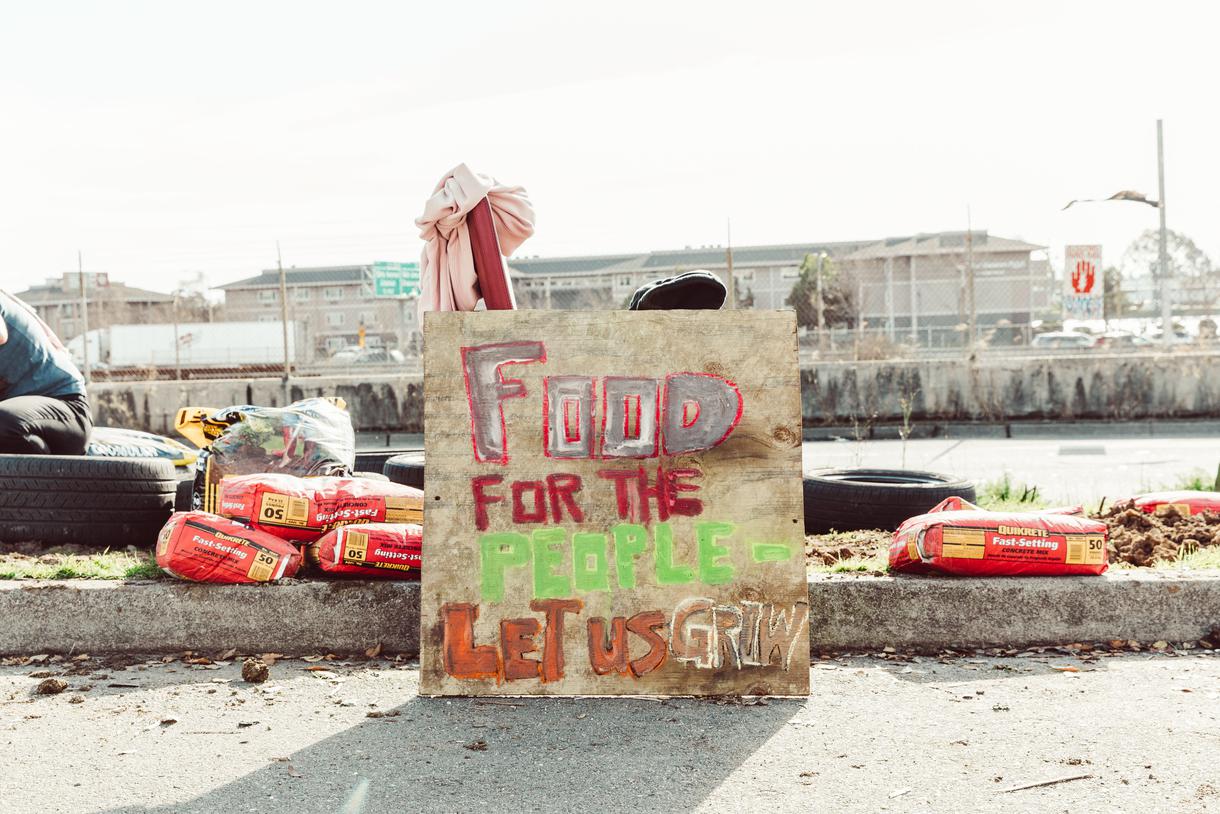
A: It was January 2016, and the homeless state of emergency was out of control. I was seeing a lot of people—people I used to hang out with when I was younger, people I used to work with, and family members—ending up homeless. And I was like, What the heck is going on? So me, my daughter, and one of my friends started sharing dinners with people in the neighborhood we were living in at the time. By June 2016, [The Village in Oakland] had grown to 70 people and our services expanded beyond hot meals. [We were also] providing provisions, helping people fix their tents, going to doctors appointments with people, going to court with people, helping people trying to figure out their disability paperwork. ... Whatever help people needed, we just ended up doing that.
Many of us [volunteers] are also organizers and activists; I myself had been doing anti-gentrification work before gentrification even became a [political] agenda in Oakland. I was part of a group that was watching what was happening in San Francisco, and we knew it was going to come to Oakland. … Knowing what the status of elected officials was and what the bureaucracy was like, I knew they wouldn’t do anything about this homeless crisis. So, our first action was to take public land, and we’ve done that four times. But all four of the villages we built on land were bulldozed by the [Oakland] mayor, so last year, we switched our tactics, and we’re now building villages in the encampments themselves and transforming tent cities or slums into actual villages.
We’ve also been working on policy on both the city level and the state level to decriminalize homelessness; to force the city, county, and state to have more humane approaches to how they’re addressing the crisis and homeless folks; and to ensure there’s going to be an affordable housing bill. We’re teaching people their rights as homeless folks and their rights around squatters’ rights, too. So, we have a multi-pronged approach to [the homeless] crisis.
*California.com contacted the Office of the Mayor for comment regarding the dismantling of the villages. According to Mayor Libby Schaaf, "The City of Oakland has an Encampment Management Policy. We assess each encampment based on the criteria of safety, health, size, and location. The City of Oakland has been brought to court on five occasions to defend that policy, and every time, the City has prevailed. The courts have found the City of Oakland's policy is fair, reasonable, and lawful."
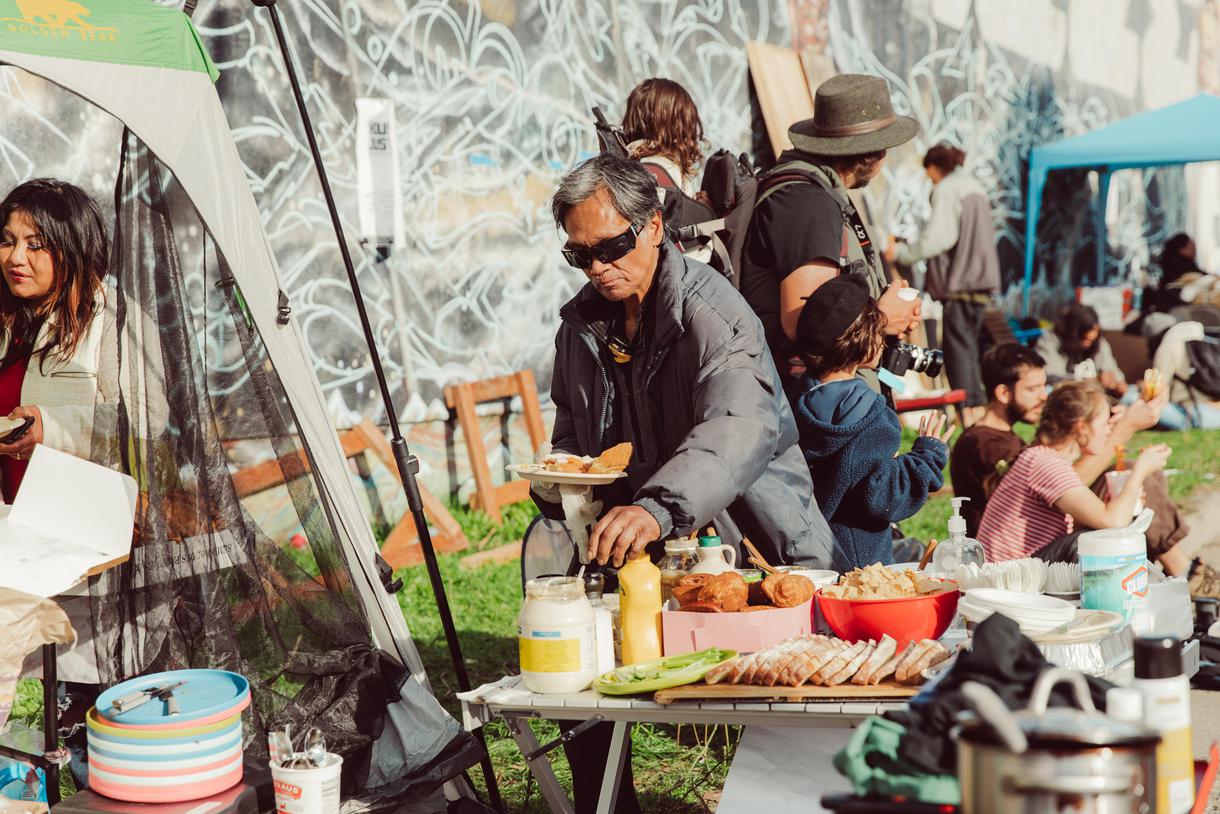
A: We call them curbside communities. The folks [living] in these encampments have been the victims and survivors of inhumane practices. They’ve had their homes bulldozed, they’ve had their tents bulldozed, and they’ve had all their property thrown away over and over and over again. Some people have gone through this like 10 times in the past year alone. Some of the residents have literally been shuffled from one site to another, one place to another. A few of them have also been through the city’s Tuff Shed program, only to be mistreated and harrassed and then kicked out of the program.
After tweaking our approach last year, we now work with existing communities instead of starting new ones. We’ve been working with this community [on East 12th Street and 14th Avenue in Oakland] for the past year to talk about how we could work with them to create their own village. So, we talked leadership development with them, what it means to live in a community, what it looks like to be a good neighbor, how you will make decisions, and how you will hold each other accountable for those decisions. Then, we had folks talk about what they would need on-site, and we developed a blueprint for what that would look like. Now, we’re at the building stage.
For the past three years, we’ve started a new village during MLK [Martin Luther King Jr.] weekend. This year, we’re going to build an existing village in an existing community [on East 12th Street and 14th Avenue in Oakland], and by the time we’re done building, there’ll be eight houses. There’ll be a communal kitchen, a solar-powered shower, and a bicycle-operated washing machine. This community also has illegal dumping happening on it, so we’re creating a raised garden bed and parklet to deter illegal dumping. The houses will have murals on them, too, so they’ll look beautiful.
*California.com contacted the Office of the Mayor for comment regarding the Tuff Shed Program. The Office asserts, "To date, the Community Cabins (formerly called Tuff Sheds) have served more than 600 participants, all of whom volunteer to participate. Of those who exited the program (within six to eight months), 56 percent are now in transitional or permanent affordable housing."
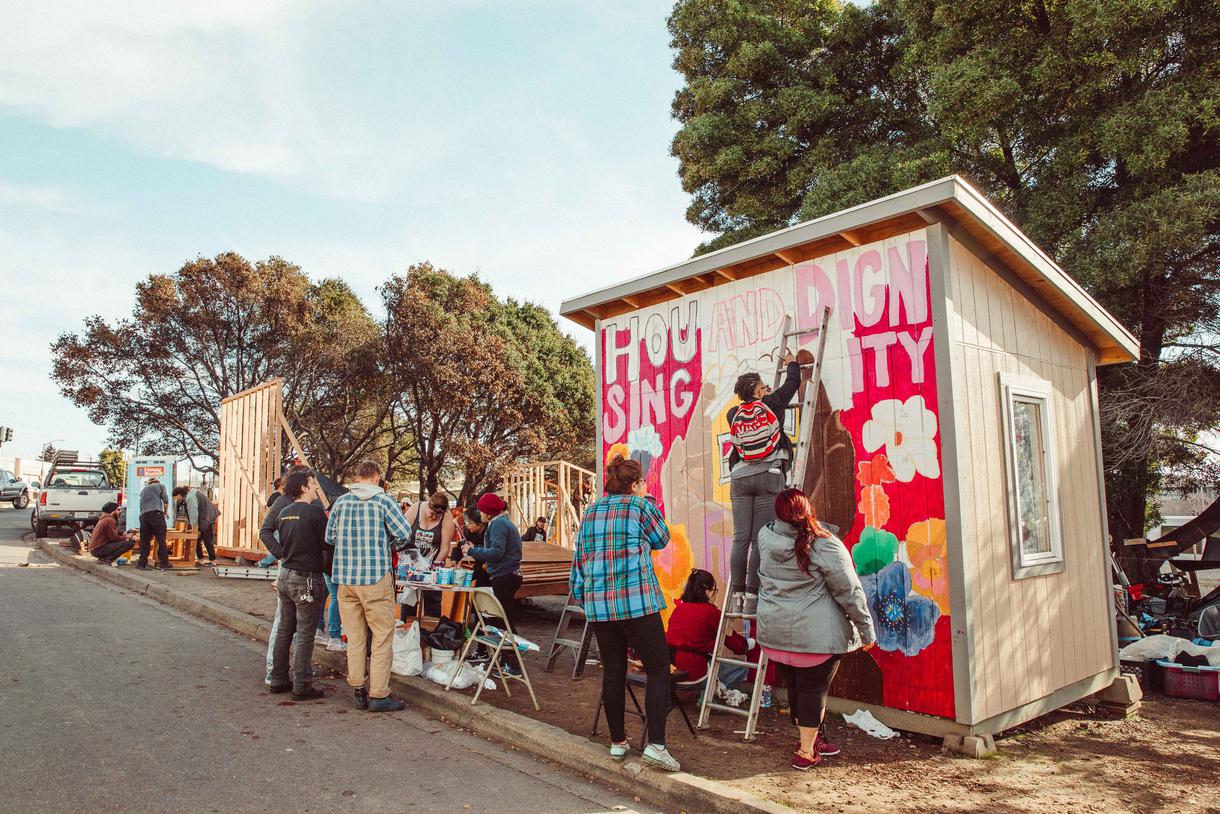
A: Lots of folks have lost their homes because of the rising costs of rent and the gentrification that’s been happening, and not knowing what their rights were when they got evicted. Many people have lost their homes because of evil addictions. And lots of folks lose their houses because the new landlords don’t want to accept Section 8. There are actually people in the encampments who are Section 8 recipients and lost their housing, and now they’re sitting in encampments with Section 8 housing vouchers and nowhere to use them.

A: The increased criminalization and brutalization of unhoused folks, and there's no solution. It is just harassment.
A: There are several solutions. One is: There needs to be a moratorium on market-rate and above-market-rate housing. The [City of Oakland] needs to set affordable housing goals. Currently, the city has reached their market-rate and above-market-rate housing goals by 300 percent ... in terms of their affordable housing goals, they have reached those goals by 5 percent. So, [the city has] such a blatant disregard for reaching the housing goals that impact what I call “The Town” while going over the top building for what I call “The New Oakland.” [The City of Oakland needs] to be committed to those affordable housing goals. It’s not a lack of housing that is the problem—it’s a lack of affordable housing, and the fact that there are these empty buildings in the midst of a homeless state of emergency. It’s criminal. It doesn’t make any sense.
[The City of Oakland] also needs to create some kind of incentive or some kind of minimum standard for all these units that are getting built—some percentage needs to be Section 8 housing. These developments that are 100-percent market rate or above market rate, they need to be mixed-income housing, and some of that mixed-income housing has to be Section 8.
We’ve seen an influx of wealth and housing and jobs come to the Bay Area, but you need to have a specific kind of job to afford Oakland today, and those jobs are not accessible to working-class people. So, there needs to be a concerted effort to create a job market that allows people to have a quality of life and maintain the cost of living as it is today, or they need to make the current job market more accessible to working-class people.

A: [The Village in Oakland] only hires skilled builders to work with our building teams so we can move fast, so any skilled builders are welcome to contact us. People who want to help with food distribution: We usually go out on Tuesdays and Wednesdays and provide hot meals and provisions for folks. If folks want to donate, they can do it on the website. We also have a big need for tents, tarps, and winter jackets. And we always need socks and bottled water.
But the best way to help homeless folks is to be a good neighbor to the folks in your neighborhood. If you work somewhere or live somewhere where there are homeless people, go up and talk to them; get to know them like you would any other neighbor. You’ll find out that homeless people are some of the most intelligent, resilient, and resourceful people you’ll ever meet in your life.
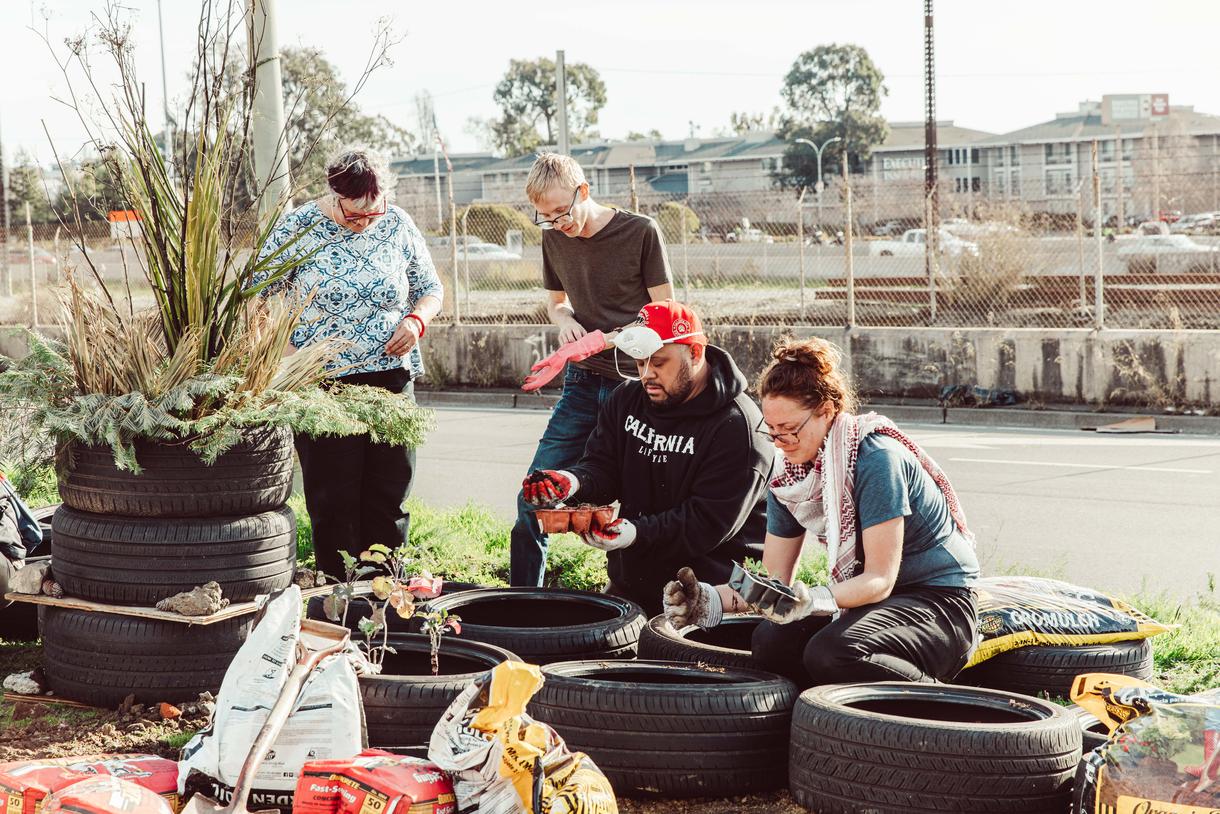
A: I want folks to know that homelessness is not a crime. What the crime is is a society that allows homelessness to exist, that most of us are one paycheck away from being homeless, and that we haven’t seen a housing crisis like this since the Great Depression. … I also think it’s important for people to know that the people living in the encampments—that’s visible homeless. But there are people who live in motels, there are people who couch surf, there are people who literally live in doorways, there are people who ride the bus all night. Folks should consider that what they see on the streets is just the tip of the iceberg.
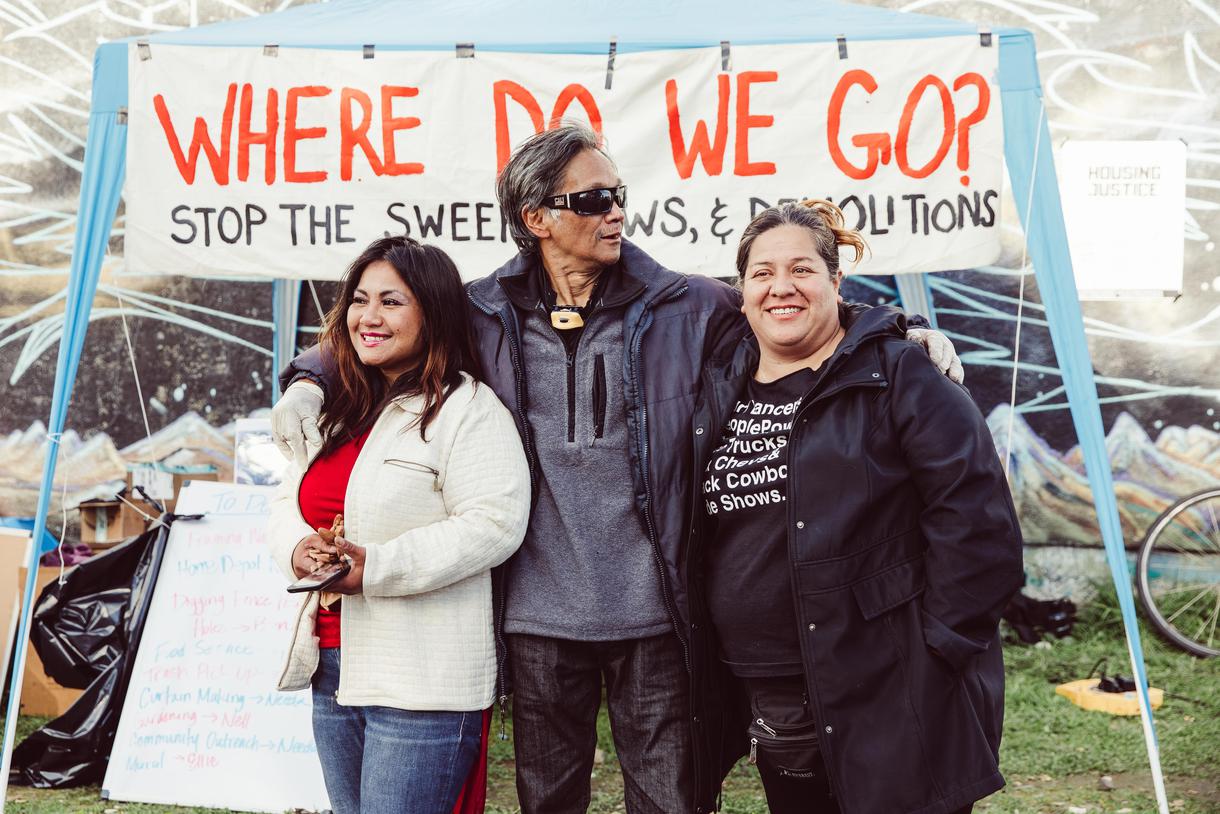
To learn more, visit The Village in Oakland. You can also read the other articles in our first “Helping the Unhoused” series: “Change the World with Justin Baldoni at the Skid Row Carnival of Love” and “The Art of Being A Gentleman at Trinity Center.”

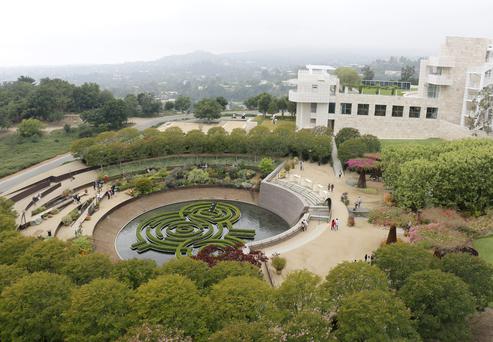
There's plenty of fun and free things to do in Los Angeles. Here's a breakdown of the best free museums in Los Angeles.

Enjoy our quick guide on where to see fall colors in Southern California and experience autumn at its fullest in the Golden State.

Enjoy the City by the Bay for free with these awesome free activities in San Francisco that aren't just hiking.

The Golden State is known for its unique history and unconventional spirit, but these interesting facts about California will surprise you.

